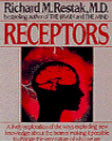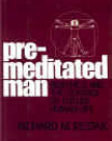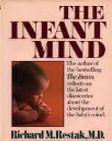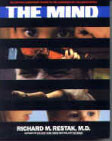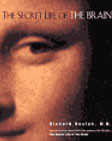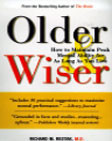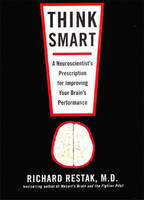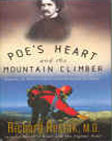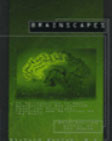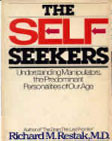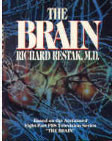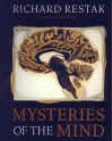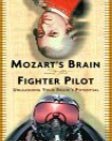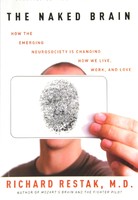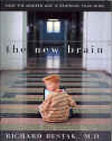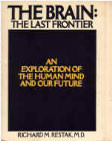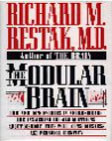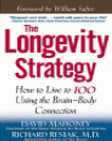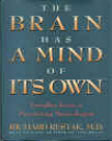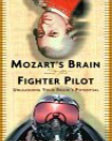
Introduction
Most of us would like to be smarter. But how do we go about improving our mental prowess? That question isn't easily answered. For one thing, even if we could somehow raise our IQ a few points (as promised by many books and programs currently on the market), such an achievement wouldn't necessarily imply that intellectually we'd really be any better off. We all know people with high IQs whose adult accomplishments are less than impressive. A more realistic goal is to enhance our mental functioning in certain key areas that psychologists refer to as cognition.
Briefly, cognition refers to the ability of our brain to attend, identify, and act. More informally, cognition refers to our thoughts, moods, inclinations, decisions, and actions. Included among the components of cognition are alertness, concentration, perceptual speed, learning, memory, problem solving, creativity, and mental endurance. Each of these components of cognition has two things in common. First, each is dependent on how well our brains are functioning. Second, each can be improved by our own efforts. In short, we can make ourselves smarter by enhancing the components of cognition. This book will provide you with methods for enhancing cognition by improving your brain's performance.
Regular exercise of your brain's cognitive powers is the first step. Most of us now incorporate into our daily life some form of regular physical exercise. We do this because such efforts improve our general physical health and, in addition, make us feel better. A similar situation exists when it comes to exercising our brain. The more we exercise it, the better it performs and the better we feel, In addition, the brain, in contrast to other physical organs, doesn't wear out with repeated and sustained use. On the contrary, the brain improves the more we challenge it. This observation has led to a fundamental principle about the brain's operation: use it or lose it.
Think back to a talent or skill that you developed by practice and application but subsequently allowed to languish. Perhaps you were a decent piano player at one time in your life, but later stopped your lessons because you didn't "have the time to practice." Or maybelike me-you took chess lessons that enabled you to become a moderately competitive player. Competitive, that is, until you dismissed your instructor, canceled the chess magazine subscriptions, and gradually gave up the game.
In both of these instances-music and chess-changes took place in your brain. After the initial establishment of circuits for music and chess, your brain underwent a kind of atrophy as the circuits important for these activities disappeared secondary to disuse.
Fortunately, the brain is highly resilient and has a lifetime memory. Those music and chess circuits can be revived. All that's required is that you once again start playing the piano (or some other instrument), or take up your chess lessons and engage in regular chess matches with some challenging players. This is possible because throughout our lives the brain retains a high degree of plasticity; it changes in response to experience. If the experiences are rich and varied, the brain will develop a greater number of nerve cell connections. If the experiences are dull and infrequent, the connections will either never form or die off. We know this from studies carried out on laboratory animals.
If an animal is provided with a stimulating, challenging environment like a cage filled with toys, that animal's brain will show a dramatic increase in the number of nerve cell connections. The animal's brain will be heavier with larger nerve cells in some areas than in animals that are reared in barren, comparatively deprived laboratory cages. This increase in brain weight results from an increase in the number of synapses-electrochemical connections-between neurons.
As mentioned, a similar process occurs in the human brain. Indeed you can preselect the kind of brain you will have by choosing richly varied experiences. The process starts in childhood and continues until the day you die. Incidentally, this insight-that the brain retains its plasticity across the entire life span-is a comparatively recent one. When I wrote my first book on the human brain in 1979, I didn't hear much from the scientists I interviewed about the plasticity of the mature, adult brain. At that time, most people-scientists included-believed that as the brain matured and formed its nerve cell connections, those connections stayed in place until finally dropping out in old age. Few people thought of the brain as being susceptible to change in its actual structure.
Now, thanks to research like the experiments mentioned above, we know that the brain is much more malleable and subject to change. Indeed, we have no choice about whether or not our brain will change from the way it is today. The real question is: Will we help bring about positive, enriching changes in our brain's structure and function, or will we allow it to undergo "disuse atrophy"?
It's important to remember that our brain holds the key to everything we will ever accomplish. Indeed, the brain is the gateway for all of our sensations and the weaver of all of our experiences. And while most of us are convinced that exercise increases our physical wellbeing, it's less commonly appreciated that the brain also must be exercised; it's a dynamic structure that improves with use and challenge. I became convinced of this while researching two previous books on longevity. Simply put, an otherwise healthy older person can reduce his or her risk for developing dementia (formerly referred to as senility) by remaining mentally active. But the benefits of an active challenged brain aren't limited to late in life. Rather, the "use it or lose it" formula applies to each of us no matter what our age.
Moreover, the healthy exercise of our brain's inherent powers is highly pleasurable. Think back to occasions when you scored-well on a test or prevailed in a debate or found yourself unable to put down a certain book because of the excitement you experienced while reading it. Your pleasure in each of these instances came from the exercise of your brain's cognitive powers. Further, there are specific steps you can take to increase and strengthen these powers. In essence, you can achieve more of the things that you desire by enhancing your brain's cognitive functioning.
For instance, memory is probably the most important cognitive function. We are what we remember. If you doubt this, spend a few minutes with people suffering from Alzheimer's disease. They no longer remember the most important and noteworthy events in their lives. Not only do they not remember their marriages, but they may no longer even recognize their spouses. Ask them what they once did for a living and your answer may consist of nothing more than a blank stare.
Contrast this to a person endowed with a rich memory. Events and people can be recalled with clarity and richness. Thanks to memory, he or she can respond to detailed questions about the past and link that past with the present. The ability to recall conversations, family vacations, favorite movies and books, appointments, and social engagements depends on memory.
Yet we also recognize that poor memories aren't limited to Alzheimer's and other diseases. Some of us are lucky and can remember faces and names from the distant past. Those of us with natural memory gifts have only to be told something once in order to have it readily available for instant recall. Fortunately, for those endowed with a less-efficient memory, steps can be taken to improve it.
Useful and effective memory systems can be traced back as far as the Greeks. Aristotle wrote a short book on memory and compared the mind to a wax tablet that received the impressions of all new information. He suggested that with the passage of time the clarity of the wax image would fade unless steps were taken to preserve it. Plato possessed prodigious powers of recall and considered memory as a force for personal integration with the spiritual forces of the cosmos. Metrodorus, a first-century B.C. Greek writer, astounded friends and colleagues with his ability to remember conversations he had had with them sometimes years earlier. Indeed, the Greeks so venerated memory that they transformed it into a goddess-Mnemosyne, mother of the Muses.
But the greatest contribution of the Greeks to our contemporary understanding of memory was the insistence, starting with Plato, that memory could be trained. They originated the liberating idea that we don't simply have to accept our natural memory talents or lack thereof. We can take specific steps toward improving our memory. The same can be said about all of the other components of cognition.
This book will provide you with specific positive steps you can take to get smarter and stay smarter. It is based on an important principle: The more you learn about how your brain works, the better your chances of using it most efficiently, optimizing your intellectual capabilities, and accomplishing even more in life than many people who may score higher than you on standardized intelligence tests.
What follows are twenty-eight suggestions and some accompanying exercises for enhancing your brain's performance. These suggestions are based on my own experiences over a career that has included writing of twelve books on the human brain while simultaneously maintaining a full-time practice in neurology and neuropsychiatry. In response to the competing demands of this dual-career track, I learned how to get the best possible performance from my brain. After discovering what worked for me, I started several years ago compiling a list of suggestions anyone can follow in order to increase his or her brain efficiency.My aim in Mozart's Brain and the Fighter Pilot is to convey to you an understanding of the basic principles of brain operation. Once you understand those principles, you can follow the twenty-eight suggestions and perhaps even come up with some more of your own based on sound operating principles that will help you improve your brain function. Let's start right off with the first, and in many ways most important, of the suggestions outlined in this book.
